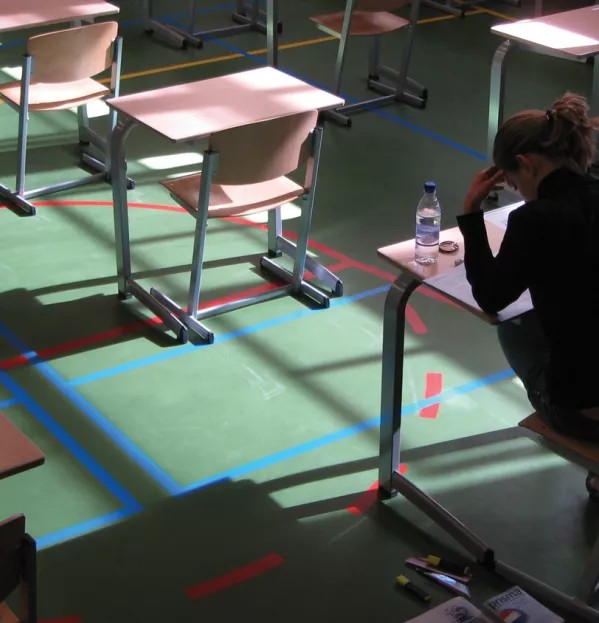AoC launches legal action over ‘unviable’ sixth form

The Department for Education faces a landmark legal challenge over the opening of a new school sixth form, which colleges claim is not viable, TES can reveal.
The Association of Colleges (AoC) and Havering Sixth Form College have jointly instigated a judicial review after regional schools commissioner (RSC) Tim Coulson approved a bid by Abbs Cross Academy and Arts College in Hornchurch, East London, to open a new sixth form in September 2017.
The AoC argues that the application failed to meet guidelines set out by the DfE in March. These include that applications should “normally” be put forward only by schools rated “good” or “outstanding” by Ofsted, which offer a broad range of A-level subjects and expect to enrol 200 or more students. The government guidance also stresses that any new sixth form must not be a financial burden on the rest of the school (see box, below)
If successful, the legal challenge could lead to further scrutiny on schools that apply to open sixth forms in the future. The AoC also believes the ruling could have a bearing on proposals to open new grammar schools, in establishing whether official guidance for RSCs “really has any teeth”.
Paul Wakeling, principal of Havering Sixth Form College, said he did not believe the application by Abbs Cross, currently in special measures, complied with the criteria. “This is the first case,” he said. “It came four weeks after the guidelines were published, and we had a decision that seemed contrary to those guidelines. We decided to make a stand.”
AoC chief executive David Hughes said: “The choice and breadth of high-quality education and training is so important for all young people.
“We felt we had no choice but to initiate a judicial review when the official government guidance, designed to ensure the quality and viability of post-16 education, was ignored… We were delighted when the government responded to our calls for clear guidance on the establishment of new school sixth forms.
“For too many years, the lack of clear guidance had allowed the establishment of inappropriate school sixth forms. All we are seeking is that the guidance is adhered to.”
The case is due to be heard on 1 November.
Contradictory approach
Under the coalition government, schools were encouraged to establish sixth forms, with 169 opening between 2010 and 2015 - a period when the number of 16- to 18-year-old students dropped. According to the AoC, this resulted in 1,180 school sixth forms having fewer than 100 students.
Separate guidance for the area reviews, published last September, acknowledged that “similar provision in sixth forms is often duplicated in relatively small geographical areas”, and pointed out that “some evidence raises concerns about the costs, breadth of offer and outcomes for these providers”.
The Sixth Form Colleges’ Association has lobbied ministers and RSCs about small school sixth forms. “There are still examples - and this is one - of school sixth forms being established where they are not needed,” deputy chief executive James Kewin said.
Mr Wakeling told TES that the legal action was not an “aggressive action against the school” but a test of “how seriously the DfE is taking its own guidance”. He added: “I don’t think [Abbs Cross’ application] complies with any of the criteria. The local data shows that there’s a declining demographic in this borough. There will be around 460 [fewer] 16- to 18-year-olds in the borough by 2019, so we don’t think it meets demand.”
He also contrasted the approach with the area review process for colleges. “We’re all being encouraged to be bigger and financially more healthy, while at the same time you’re getting another arm of the same department licensing new competition, which is going to have the opposite effect,” Mr Wakeling said.
The Loxford School Trust, which runs Abbs Cross, declined to comment.
A DfE spokesperson said it would “not be appropriate to comment while proceedings are ongoing”.
You need a Tes subscription to read this article
Subscribe now to read this article and get other subscriber-only content:
- Unlimited access to all Tes magazine content
- Exclusive subscriber-only stories
- Award-winning email newsletters
Already a subscriber? Log in
You need a subscription to read this article
Subscribe now to read this article and get other subscriber-only content, including:
- Unlimited access to all Tes magazine content
- Exclusive subscriber-only stories
- Award-winning email newsletters